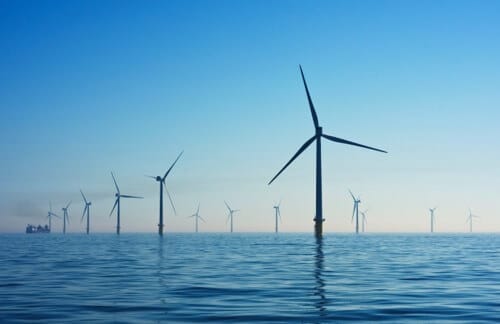

- 13. June 2023
- By:Oda Nødtvedt
News
Businesses must do the transformation talk
As we enter 2023, Trond Winther takes a look into the crystal ball and writes in Stavanger Aftenblad about six trends that will shape our society in the new year.
We leave behind a year of unrest in the world. There is war in our neighboring regions, democracy is under pressure, there is global polarization, challenging economic times, digitalization continues in full swing, and climate change looms over us. As we enter 2023, it is time to gaze into the crystal ball.
1. The battle for resources sharpens security on the Norwegian continental shelf
The gas leak in the Baltic Sea and increased drone activity in the North Sea have placed security at the top of the agenda. Norwegian oil and gas installations have been designated as vulnerable targets for terrorism. And there has never been a greater reason to disrupt Norwegian gas delivery to Europe than now. This poses greater and more complex demands on security and preparedness.
2. Higher expectations and stricter regulatory requirements
There is increased focus on compliance with existing regulatory requirements in risk management, preparedness, and sustainability. It is crucial for businesses that want to maintain or strengthen their position to establish and maintain good systems, procedures, and a culture of responsible risk management and preparedness. In the field of sustainability, the new regulations with the catchy name EU Taxonomy have just come into effect in this country. The most obvious consequence of stricter regulatory requirements is higher demands for reporting. And this is probably just the beginning.
NEW SECURITY THREATS CHALLENGE US TO THINK DIFFERENTLY. IT’S ALL ABOUT UNDERSTANDING AND MANAGING RISK. AND THE GREATEST CURRENCY IS KNOWLEDGE.
3. A world in an energy war
The energy crisis in Europe is prompting the EU to accelerate the green transition to become less dependent on natural gas. In the long run, Europe must scale up renewable energy resources on a large scale. This means that electricity consumption must be made more efficient while society electrifies. At home, this leads to the emergence of new industries such as hydrogen and offshore wind power, and perhaps greater deliberations on further development of onshore wind power.
4. The need for sustainable transformation
Prices of goods and services have risen at a pace we haven’t seen in decades in 2022. Inflation is largely supply-driven, where lower energy supply leads to increased prices. The paradox is that the Norwegian economy is doing well. Raising the policy rate in fear of expansive fiscal policy becomes the solution. Therefore, transformation, the green shift, and a sustainable economy are necessary to alleviate the pressure on the economy.
5. More extreme weather to come
Human-induced climate change is leading to more landslides, avalanches, floods, and storms. The insurance industry is already paying out staggering amounts related to natural disasters. We know that we need to adapt to climate change in the way we build our society, but it’s worth questioning whether the staggering insurance sums are due to bad weather or poor planning.
6. Trust under pressure
Politicians and leaders are tasked with addressing challenges in climate and sustainability, digitalization, power, and the economy, where trust plays a central role. Trust is one of the greatest currencies we have in Norway and has been highlighted as one of the success factors in pandemic management. High electricity prices, shrinking inflation, and price growth can challenge the green transition. And for many, it’s challenging to see how society can electrify when prices are already so high. For politicians and leaders, it’s a challenge to provide a realistic answer to how this can be resolved.
What can we do?
New security threats challenge us to think differently. It’s all about understanding and managing risk. And the greatest currency is knowledge. 2023 will also be an uncertain year. With the EU Taxonomy on the horizon, financial markets are becoming linked to sustainable transition. For the calendar year 2023, we must continue to prepare ourselves for transformation, the green shift, and a sustainable economy. Society and businesses will engage in transformation for the foreseeable future. Businesses that do not already have realistic ideas about how they will contribute to sustainable transformation will be left behind. And to succeed, digitization must be part of the plan. We at Proactima will do our part.




